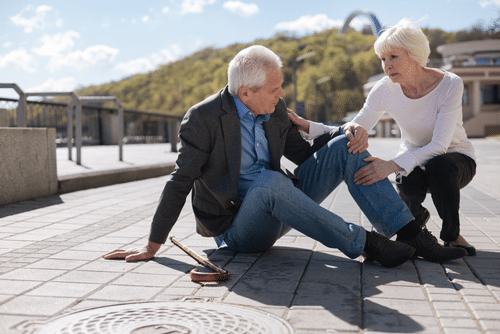It’s one of the most terrifying realizations anyone can have: “Oh no, I’m having a heart attack!”
It might be followed by, “Will I die? What can I do to save my life?”
Someone has this moment every 40 seconds in the U.S. And every nine minutes, the victim dies within the first hour.1 2
Some of them might have survived if they had known what to do when the symptoms first hit them.
Never Ignore These 6 Signs of a Heart Attack
If you have chest pain, tightness, or discomfort, there are six additional symptoms that can confirm you’re having a heart attack.
- Pain that spreads to the shoulders, neck, or arms
- Irregular or rapid heartbeat
- Cold sweat or clammy skin
- Lightheadedness, weakness, or dizziness
- Shortness of breath
- Nausea, indigestion, or vomiting
Dr. James de Lemos is a heart specialist at the University of Texas Southwestern Medical Center in Dallas. “When we think heart attack, we think severe chest pain,” he said. “That’s the classic symptom, but it’s not the only one.”3
Most heart attacks occur in the morning, when platelets in the blood are “stickier” and prone to forming clots.4
Never ignore chest pain…especially if it comes in the morning and in combination with any of the other six symptoms.
Call 911
If you think there’s a chance you might be having a heart attack, don’t hesitate. Call 911 immediately.
Some people wait because they don’t want the inconvenience or embarrassment that comes with a paramedic call. They worry that they are suffering only heartburn or anxiety. They decide to wait to see if their symptoms get worse.
That could be a deadly mistake.
Don’t try to drive yourself to the emergency room. You could lose consciousness on the way. 5
Do This While Help Is on the Way…
Most heart attack deaths occur within the first hour. If you can make it to the hospital alive, you have a 90% chance of survival. To increase your odds of arriving alive, do these three things…
- Chew one aspirin (or four baby aspirin). This will thin your blood and lessen the impact of the heart attack. Keep aspirin at home, work, and in your gym bag.6
- If other people are nearby, alert them you may be having a heart attack. They may be able to help you. If you’re in a public place, a doctor may be nearby. If you lose consciousness, someone nearby may be able to perform CPR. If you’re driving, stop the car and flag down a passing motorist. If you’re on an airplane, notify a flight attendant.
- Minimize activity. Sit down and rest as best you can. Exertion strains the heart further. It’s better to lay in a half-sitting position with your head and chest slightly elevated and supported. Your knees should be bent. Laying flat can make it more difficult to breathe.7 8
If you believe you are at high risk, talk to your doctor. He might instruct you to keep nitroglycerin tablets handy. They quickly dilate blood vessels and can limit heart attack damage.9
And when you see your doctor, make sure to ask for the 15-minute test that reveals how healthy your heart really is… Get all the details HERE.
Like this Article? Forward this article here or Share on Facebook.
References:
1 https://www.cdc.gov/dhdsp/data_statistics/fact_sheets/fs_heart_disease.htm
2 https://www.cdc.gov/dhdsp/data_statistics/fact_sheets/fs_heartattack.htm
3 https://www.dallasnews.com/life/healthy-living/2018/02/05/survive-heart-attack-least-fighting-chance
4 http://www.health.com/health/condition-article/0,,20188578,00.html
5 https://www.institutefornaturalhealing.com/2016/11/75-of-heart-attack-victims-break-this-simple-rule/
6 https://www.dallasnews.com/life/healthy-living/2018/02/05/survive-heart-attack-least-fighting-chance
7 https://www.wikihow.com/Survive-a-Heart-Attack
8 https://www.theguardian.com/lifeandstyle/2010/apr/26/first-aid-myths-cost-lives
9 https://www.dallasnews.com/life/healthy-living/2018/02/05/survive-heart-attack-least-fighting-chance

